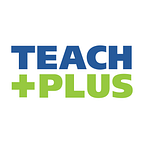Teachers Should Be at the Table Planning for Teaching and Learning This School Year
By Hjamil A. Martínez-Vázquez
“¿Maestro, cuál es el plan para comenzar la escuela? En las noticias dicen unas cosas y los mensajes del distrito dicen otras. Yo no le entiendo y estoy preocupada.” (“Teacher, what is the plan for the beginning of the school year? In the news they say some things and the emails from the district say others. I do not understand and I am worried.”) I am sure that I am not the only teacher who has received a message or a phone call like this one from parents as we were preparing for the start of the school year. The situation in our state has been constantly evolving and the guidelines and instructions have been changing just as rapidly. Javier’s mom added: “Pregunto porque quiero saber cómo todo esto va a afectar a Javier.” (“I am asking because I want to know how all of this will affect Javier.”) I completely understood her worry, as I have heard it from many parents. The fact is that just like it was before school started, I feel like I still do not have the answers for Javier’s mom or any parent because things are not clear. We teachers are not active participants in the planning but continue to be left at the sidelines of the process.
Javier’s mom, while frustrated with the constant changes in the plans, is not just thinking about distance learning versus in-person or the changes in the calendar. She wants safety but also wants to know that Javier is getting the education, care, and support he needs. This is true of all of my students. Who is going to be advocating for them? Who is going to listen to the voices of their parents since the district’s only town hall meeting for the community was in English? How do the district’s plans include their needs? I believe the answer is to include teachers in the planning and decision-making as we continue to navigate this challenging year. As educators, we agree that the best path forward is to listen to health experts. But we also need to continue re-thinking the educational system and we need the expert opinions of the teachers who are on the frontlines of that system.
During this pandemic, we have been providing education and much-needed social and emotional support to students and families. We became technology experts as we went into our students’ new classrooms, their homes, and helped them to set up their computers. We also became social workers as we helped struggling families with food security and rent issues, among many other things. We experienced our students’ struggles with virtual learning and the families’ frustrations throughout the whole process. Our work with students and families led to a partnership beyond the classroom and this contact allowed us to have a different perspective on the needs of our students. These perspectives are needed in the construction of ongoing plans regarding curriculum, school’s services, and the new way to educate our students.
One way to ensure that teachers are at the table when plans are being created is through a teacher advisory board. A district like my own can bring together a group of diverse teachers to work with the superintendent and district leaders during this time of emergency. With teachers with multiple perspectives and experiences on the advisory board, my district can develop a plan that is best aligned to what teachers and students need. For example, who better to speak about schedules for students and teachers during virtual learning than those who know the effect of distance learning on students and teachers? Furthermore, teachers are the ones implementing the curriculum, so they would help in the creation of plans that address the different needs of highest-need students, such as English language learners and special education students.
Teachers need to be inside the rooms where plans are being constructed for this semester and beyond. Our voices and experiences will bring a diverse perspective derived from our work and close relationships with our students and their families. These are extraordinary times and there is no doubt in my mind that education will change forever. Let’s allow teachers to be active participants in this re-construction. Let’s make sure we bring the voices and needs of our students and families like Javier’s to the forefront of the planning and development process.
Hjamil A. Martínez-Vázquez teaches 4th/5th grade SLAR/ELAR at ACE Demonstration and Design Lab at J.A. Hargrave Elementary in Fort Worth, Texas. He is a 2020–21 Texas Senior Policy Fellow.
